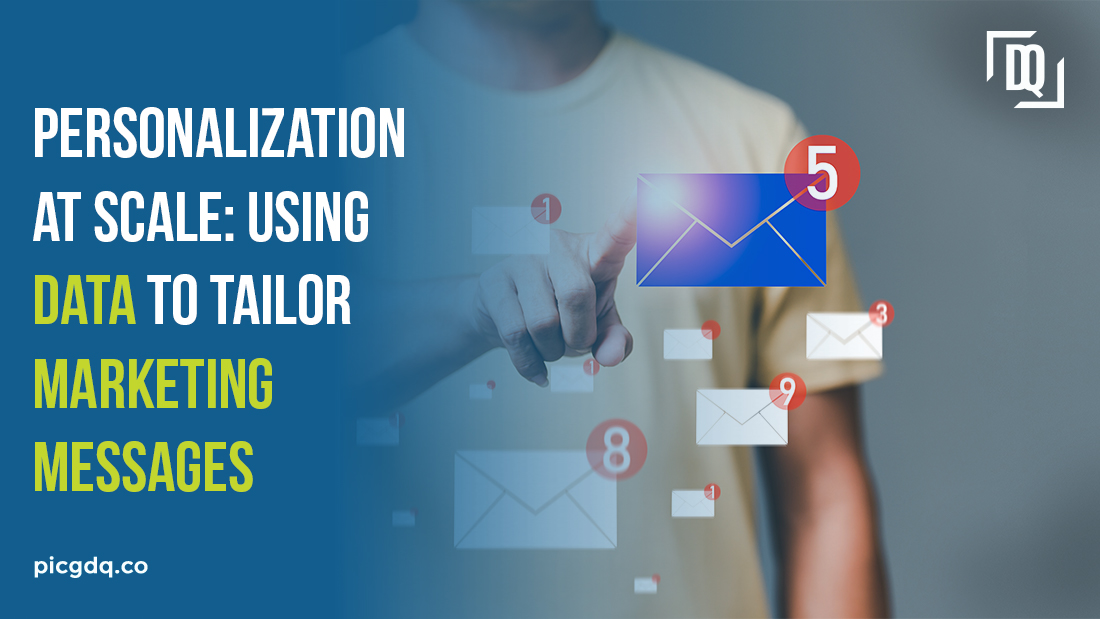Published on 11 Jun, 2024

Did it happen to you before, you went on social media and your favorite brands know your purchase history, and recommend products you'd genuinely love. That's the magic of personalization at scale in marketing. It's about using data to deliver customized experiences to a large audience, making each customer feel like they're getting the VIP treatment.
In today's crowded digital world, generic marketing messages just don't cut it anymore. People crave relevance. They want to see ads, offers, and content that speaks directly to their needs and interests. Here's why personalization at scale matters:
Boosts Engagement: Personalized messages are more likely to grab attention and resonate with customers. This leads to higher click-through rates, website visits, and ultimately, conversions.
Increases Sales: When customers feel like you understand their wants and needs, they're more likely to buy from you. Personalization can significantly boost your sales and revenue.
Enhances Customer Loyalty: People appreciate brands that take the time to understand them. Personalized experiences create a sense of connection and loyalty that keeps customers coming back for more.
Personalization can take many forms. Here are some real-world examples:
Product Recommendations: Imagine browsing an online clothing store and seeing a section titled "Recommended for You" featuring items similar to what you've looked at previously. This is personalization at work, using your browsing history to suggest relevant products.
Targeted Email Campaigns: Instead of sending out generic emails to your entire email list, personalized emails segment your audience based on demographics, purchase history, and interests. You can then send targeted messages that are more likely to resonate with each group.
Dynamic Content on Websites: The content you see on a website can be personalized based on your location, browsing history, or previous purchases. This allows brands to showcase products and information that are most relevant to you.
Personalization at scale wouldn't be possible without data. Here are some of the key data points used by marketers:
Customer Demographics: Age, location, gender, and income can all be used to personalize marketing messages.
Purchase History: What a customer has bought in the past is a strong indicator of what they might be interested in buying in the future.
Website Behavior: Browsing history, items viewed, and time spent on specific pages can reveal a lot about a customer's interests.
Social Media Activity: What a customer likes, shares, and engages with on social media can be used to personalize ad campaigns and content recommendations.
Personalization relies on data, and data collection raises privacy concerns. It's crucial to balance delivering personalized experiences and respecting user privacy. Here's what you can do:
Be Transparent: Communicate how you collect and use customer data.
Offer Opt-Out: Allow customers to choose whether they want to receive personalized marketing messages.
Use Data Responsibly: Only collect and use data necessary for personalization, and always ensure data security.
Personalization at scale is constantly evolving. Here are some exciting trends to watch:
Artificial Intelligence (AI): AI can analyze vast amounts of data and make real-time recommendations for personalized marketing messages.
Omnichannel Marketing: Personalization will extend across all touchpoints, from email and social media to websites and physical stores.
Focus on Customer Lifetime Value (CLTV): Personalization will move beyond immediate conversions and focus on building long-term customer relationships.
Even small businesses can benefit from personalization at scale. Here are some tips:
Start Simple: You don't need a lot of data to get started. Use basic data like email addresses and purchase history to segment your audience and send targeted messages.
Leverage Available Tools: Many marketing platforms offer built-in personalization features. Explore these tools to see how they can help you tailor your marketing efforts.
Focus on Customer Value: Always remember that personalization is about delivering value to your customers. Make sure your personalized messages are relevant, helpful, and not intrusive.
Personalization at scale is not about treating everyone the same; it's about treating everyone like an individual. Using data responsibly and creatively allows you to create personalized marketing experiences that resonate with your customers, build stronger relationships, and ultimately achieve your business goals.